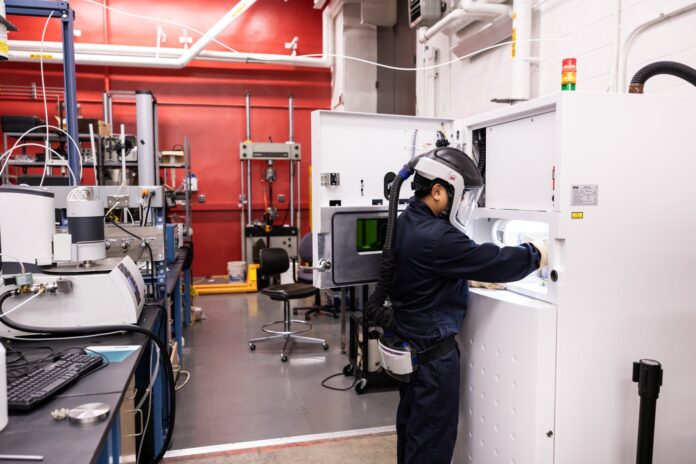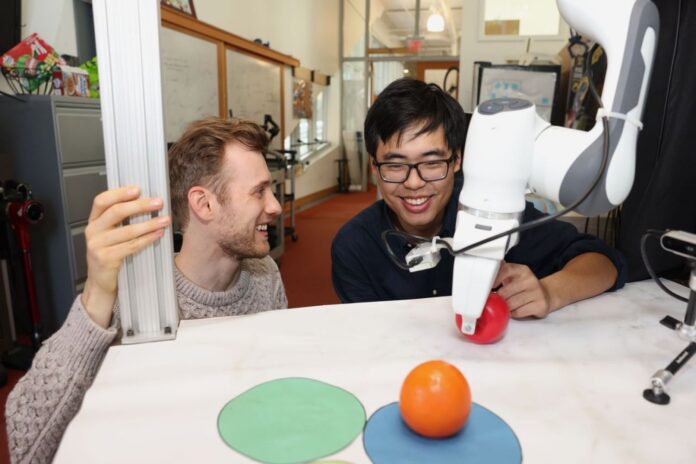In Short:
Many doctors entered medicine to help patients but now spend excessive time on administrative tasks, leading to burnout and less patient care. Ambience Healthcare aims to change this with an AI platform that automates those tasks. Their tools assist with documentation, insurance coding, and patient communication, allowing doctors to focus more on patient care. It’s currently used in 40 large health institutions.
The current landscape of healthcare often requires physicians to allocate substantial hours to administrative duties. This includes tasks such as navigating electronic health records (EHRs), writing documentation, coding and billing, managing prior authorizations, and overseeing utilization management. These responsibilities frequently overshadow the time dedicated to direct patient care, leading to heightened risks of physician burnout, operational inefficiencies, and compromised patient care quality.
Ambience Healthcare aims to address these challenges with its innovative AI-powered platform, designed to automate routine tasks throughout the patient care cycle—before, during, and after visits.
“We build co-pilots to give clinicians AI superpowers,” remarks Ambience CEO Mike Ng, an alumnus of the MBA program from 2016, who co-founded the company alongside Nikhil Buduma, a 2017 graduate. “Our platform is integrated directly into EHRs to allow clinicians to concentrate on what matters most: delivering optimal patient care.”
Ambience’s comprehensive suite includes features for pre-charting, real-time AI scribing, and thorough navigation through the myriad of insurance billing codes. Additionally, the platform provides after-visit summaries to patients and their families in multiple languages, ensuring effective communication and engagement.
Currently, Ambience is being utilized by approximately 40 major health institutions, such as UCSF Health, Memorial Hermann Health System, St. Luke’s Health System, and John Muir Health. Clinicians across various specialties and subspecialties leverage the platform in numerous languages in diverse settings, including emergency departments, inpatient hospital environments, and oncology wards.
Users of Ambience report saving two to three hours daily on documentation tasks, experiencing lower burnout levels, and cultivating more meaningful relationships with their patients.
Transforming Challenges into Solutions
Ng’s journey into healthcare innovation began in finance but took a pivotal turn in 2012 when a back injury exposed him to the complexities of the healthcare system. After enduring a misdiagnosis and a misguided treatment plan, Ng came to understand how most clinicians spend the majority of their time on documentation and administrative tasks, with an alarming statistic indicating that only 27 percent of their time is devoted to direct patient interactions.
In 2014, Ng pursued an MBA at the MIT Sloan School of Management, where he met Buduma during the inaugural “t=0” entrepreneurship celebration at the Martin Trust Center for MIT Entrepreneurship. Their shared passion for innovation led them to collaborate in various entrepreneurial classes.
Buduma’s background also played a crucial role, as his family faced challenges navigating the U.S. healthcare system after immigrating from India. His academic journey at MIT immersed him in the AI research community, where he authored a textbook on modern AI and deep learning.
In 2016, the duo founded Remedy Health, operating a pioneering AI-driven healthcare platform. Through direct involvement with clinicians and patients, they deepened their understanding of the challenges health organizations encounter. Insights gained from industry figures like Jeff Dean, Google’s Chief Scientist and a key investor in both Remedy and Ambience, shaped their vision. Dean was instrumental in developing the transformer architecture utilized in AI advancements.
Recognizing a pivotal moment in AI technology, Buduma expressed, “We realized we were at an inflection point with general-purpose models rapidly advancing; however, there remained a significant gap between these models and the practical applicability needed for clinical environments.” In 2020, they resolved to establish a dedicated team to fine-tune AI models specifically for healthcare purposes.
Ambience began by creating an AI scribe capable of securely documenting doctor-patient interactions via mobile devices and laptops, in compliance with HIPAA standards. As they developed their technology, they recognized the necessity of tailoring these models for various medical specialties and aligning with back-office operations concerning insurance coding and billing.
Buduma noted the integral nature of documentation, stating, “It serves not just clinicians, but also the revenue cycle team.” The development process involved refining algorithms to account for the constantly changing coding rules relevant to different specialties and contracts.
This expansion led to additional features, allowing clinicians to make referrals and send detailed visit summaries to patients effectively. As Buduma pointed out, “Most patients previously relied solely on their notes post-visit, but now, they receive a comprehensive summary that enhances their understanding of the consultation.”
Addressing Healthcare Accessibility
The founders of Ambience believe that enhancing physician productivity is vital to mitigating the ongoing clinician shortage expected to intensify in the forthcoming years. Ng highlighted a pressing issue of access within healthcare, stating, “Rural Americans have a 40 percent higher risk of preventable hospitalization, largely due to the lack of access to specialty care.”
As Ambience assists health systems in optimizing their operations, the founders aspire to broaden access to high-quality clinical information nationwide. “There lies an exciting opportunity to democratize expertise from leading academic medical centers across the United States,” Ng added. “Currently, there aren’t enough specialists to adequately serve our rural populations, and we aim to leverage AI to disseminate this knowledge more widely.”





